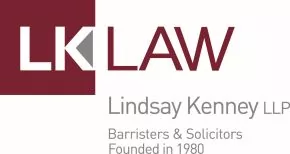What happens if some years after executing a Will, a Will-maker notes her intention to change her estate distribution but passes away before taking steps to formally execute a new Will? The Court of Appeal recently examined this question in the case of Hadley Estate (Re), 2017 BCCA 311 ("Hadley"), regarding whether the late Ms. Hadley's journal entry represented a deliberate and final expression of her testamentary intentions.
Prior to the Wills, Estates and Succession Act, S.B.C. 2009, c. 13 ("WESA") coming into force on March 31, 2014, British Columbia was a "strict compliance" jurisdiction. This meant that in order for a Will to be valid, it had to comply with all the formal, legal requirements – for example, the requirement that the Will-maker sign the Will in front of two adult witnesses. Now, section 58 of WESA, as discussed in Hadley, gives the Court to the power to consider and potentially cure any "record or document" that does not meet the formal requirements; in other words, if the Court finds that such record or document was, in fact, the Will-maker's testamentary intentions, then it could nonetheless be treated as a valid Will.
Hadley was the BC Court of Appeal's first opportunity to consider section 58. In this case, Ms. Hadley executed a Will in 2008 with the assistance of a lawyer, in which she named four nieces and three others as her beneficiaries. This 2008 Will complied with all the usual formalities required for a valid Will. However, soon after Ms. Hadley's death in 2015, a journal entry that she wrote in 2014 was discovered. Within that entry, Ms. Hadley had written the heading "This is my last Will", and indicated she wished to leave her estate to only one niece and two close friends she had met in recent years.
Given that Ms. Hadley's journal entry did not meet the required legal formalities for a Will, the BC Supreme Court was asked to decide whether to exercise its curing powers. It then considered all the surrounding factors, but determined that the 2014 journal entry should not be treated as her last Will, because it did not represent her deliberate and final expression of her testamentary intentions. Among those factors was a subsequent note of Ms. Hadley's regarding her intention to prepare and execute a new Will shortly. This indicated that she did not consider herself having already done so by way of her journal entry. The Court of Appeal ultimately agreed with the Supreme Court's decision.
Hadley serves as a reminder to Will-makers to be extremely cautious about making informal records that relate to estate distribution. These can potentially be viewed as being your last wishes, and therefore inadvertently revoke and change your previously executed Will. Please be aware that the Court's curative powers extends to electronic documents as well, and therefore a "record" can include documents saved on your personal computer. If you must make any notes at all, whether on a separate document or on a copy of your existing Will, clearly indicate that these are "Notes for Discussion Purposes Only".
In any event, we strongly suggest that you speak to an estate planning lawyer should you need assistance with preparing or making any changes to your Will. If you or someone you know would like assistance with this or any other estate planning items, please feel free to contact one of our Trusts and Estate Law practice group lawyers.
About Mackrell International – Canada - Lindsay Kenney LLP is a full service business law firm with offices in Vancouver and Langley, BC and a member of Mackrell International. Mackrell International – Canada is comprised of four independent law firms in Alberta, British Columbia, Ontario and Quebec. Each firm is regionally based and well-connected in our communities, an advantage shared with our clients. With close relations amongst our Canadian member firms, we are committed to working with clients who have legal needs in multiple jurisdictions within Canada.
This article is intended to be an overview and is for informational purposes only.

